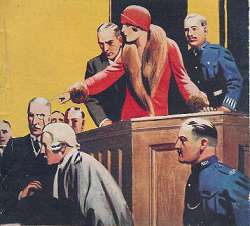 Hamas's decision to renew rocket and mortar attacks on Israel could be aimed at securing a truce rather than a wider confrontation, said analysts on Tuesday. Hamas's decision to renew rocket and mortar attacks on Israel could be aimed at securing a truce rather than a wider confrontation, said analysts on Tuesday.
| The Klondike Bar I had for dessert tonight was really to tighten my waistline, too. |
Naji Shirab, professor of political science at al-Azhar University in Gaza, said: "With the escalation of rocket fire Hamas is aiming to push Israel towards a truce, not a confrontation. I think Israel is not set on a wide operation in Gaza, but wants the rockets to stop and for there to be a truce," he said, adding that Hamas was the only power in Gaza capable of controlling the restive territory.
The Islamist movement insists that the attacks on southern Israeli towns and military positions constitute "legitimate resistance" against Israeli assaults on the Palestinian territory.
Hamas spokesperson Fawzi Barhum said: "We want there to be a balance of terror in order to rein in (Israeli) aggression."
Hamas resumed rocket attacks on January 15, after an Israeli incursion killed 19 Gazans, most of them militants. Hamas had previously halted fire for several months.
Repeated ceasefire calls
"The pressure from Sderot (a town frequently targeted) on the Israeli government comes from the strikes and the resistance," said Barhum.
Israeli leaders have faced mounting calls for a wider military operation in Gaza to snuff out the attacks. On Tuesday, Defence Minister Ehud Barak said Israeli forces would do whatever was necessary. "There are reasons why we are not using all our force right now, but it will happen at the right moment," said Barak, without elaborating.
Ahmed Yussef, a Hamas foreign policy advisor, on Tuesday reiterated calls for a ceasefire, blaming Israel for the continuing violence in an article written for the Israeli daily, Haaretz. "If the people of Sderot want to know why rockets continue to land around them, they should ask their own government why it has continually rejected our calls for a ceasefire and continued its policy of daily incursions and reckless targeting that put the whole population at risk," he wrote.
He said Hamas was not aiming for a wider confrontation, but had a "political vision aimed at achieving a long truce".
Heavy-handed policies
"If there were a sincere Israeli movement towards a truce, in terms of easing the siege and opening the crossings and allowing freedom of movement between the West Bank and Gaza, that would be the basis," said Yussef. But "if Israel continues with its heavy-handed policies, the confrontation will remain open and the conflict will continue," he said, adding that Hamas was not seeking direct talks with Israel.
However, some analysts believe Hamas may be looking for a third party to act as midwife to some kind of agreement, perhaps involving the release of Gilad Shalit, an Israeli soldier seized in June 2006 in a deadly cross-border raid. "Hamas knows Israel has plans prepared to eliminate it and this pushes it to look for another party like Egypt to arrive at a real calm," said Jihad Hamad, another Gaza-based professor. "There will be great pressure on Hamas in the coming weeks," Hamad said. "Hamas will try to achieve a period of calm and maybe even give positions back to the Palestinian Authority."
When Hamas seized power in Gaza in June after routing forces loyal to Palestinian President Mahmud Abbas, it divided the Palestinian territories, confining Abbas's authority to the West Bank.
Unilateral ceasefire
But even if Hamas were to patch up its relations with the Palestinian Authority and agree to halt attacks, it is not clear whether it would be willing or able to rein in other, smaller groups.
At various times, Hamas has observed a unilateral ceasefire in which it halted all attacks on the Jewish state, but it has never done much to encourage groups like Islamic Jihad and others to go along. The reluctance to crack down on other groups is rooted in Hamas's core belief that armed resistance is the only way to end the Israeli occupation. |
 A mutiny at Lebanon's largest prison ended peacefully on Friday after prisoners took seven prison guards hostage, a Lebanese police statement said. "The prisoners handed over the seven warders they were holding hostage and returned to their cells after having negotiated and handed over demands to the chief of internal security, Antoine Shakuri," the statement said.
A mutiny at Lebanon's largest prison ended peacefully on Friday after prisoners took seven prison guards hostage, a Lebanese police statement said. "The prisoners handed over the seven warders they were holding hostage and returned to their cells after having negotiated and handed over demands to the chief of internal security, Antoine Shakuri," the statement said. 
 Hamas's decision to renew rocket and mortar attacks on Israel could be aimed at securing a truce rather than a wider confrontation, said analysts on Tuesday.
Hamas's decision to renew rocket and mortar attacks on Israel could be aimed at securing a truce rather than a wider confrontation, said analysts on Tuesday.  A Beirut court sentenced a Lebanese man to life in prison and another to 12 years on Tuesday for their roles in a failed attempt to detonate bombs on German trains in 2006, judicial sources said. One of the two, Youssef al-Haj Deeb, was sentenced in absentia to life in prison - a reduction from an earlier death penalty. He is being held in Germany, where he faces a separate trial that began on Tuesday.
A Beirut court sentenced a Lebanese man to life in prison and another to 12 years on Tuesday for their roles in a failed attempt to detonate bombs on German trains in 2006, judicial sources said. One of the two, Youssef al-Haj Deeb, was sentenced in absentia to life in prison - a reduction from an earlier death penalty. He is being held in Germany, where he faces a separate trial that began on Tuesday.  Lebanese authorities have arrested a fourth suspect in connection with a plan to bomb two trains in Germany, and have filed preliminary charges against five Lebanese and a Syrian, judicial sources said on Saturday. Four of the Lebanese are in Lebanese custody, while one Lebanese and the Syrian are in Germany, they added. They face charges of attempted mass murder in passenger trains in Germany and attempted arson, they said. The sources named the fourth suspect as
Lebanese authorities have arrested a fourth suspect in connection with a plan to bomb two trains in Germany, and have filed preliminary charges against five Lebanese and a Syrian, judicial sources said on Saturday. Four of the Lebanese are in Lebanese custody, while one Lebanese and the Syrian are in Germany, they added. They face charges of attempted mass murder in passenger trains in Germany and attempted arson, they said. The sources named the fourth suspect as  German prosecutors on Thursday ordered the release of a Syrian man accused of helping two Lebanese men in a failed plot to blow up two trains, citing lack of evidence. Fadi al-Saleh, 23, was detained in southern Germany on allegations he did Internet research in preparation for the failed July 31 bombings. Though prosecutors said their investigation continued, they said in a statement that there was not enough evidence including through the questioning in Lebanon of prime suspect
German prosecutors on Thursday ordered the release of a Syrian man accused of helping two Lebanese men in a failed plot to blow up two trains, citing lack of evidence. Fadi al-Saleh, 23, was detained in southern Germany on allegations he did Internet research in preparation for the failed July 31 bombings. Though prosecutors said their investigation continued, they said in a statement that there was not enough evidence including through the questioning in Lebanon of prime suspect  Lebanon charged five suspects with attempted murder and arson in connection with a plot to bomb German trains in late July. Three of them, all Lebanese, were arrested in Lebanon while one Lebanese and one Syrian are being detained in Germany. They face up to 25 years in prison if convicted.
Lebanon charged five suspects with attempted murder and arson in connection with a plot to bomb German trains in late July. Three of them, all Lebanese, were arrested in Lebanon while one Lebanese and one Syrian are being detained in Germany. They face up to 25 years in prison if convicted.